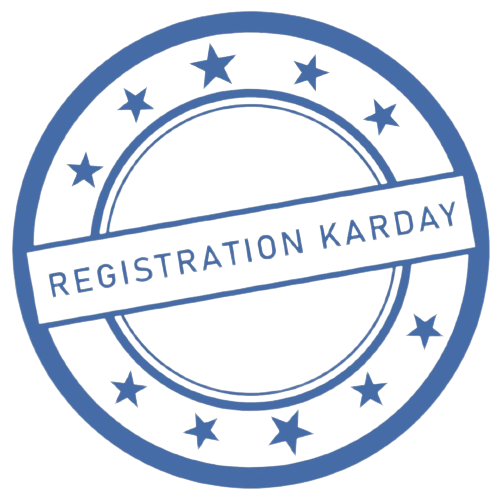17 Sep are all cryptocurrencies the same
Are all cryptocurrencies the same
However, Bitcoin is far from the only player in the game, and there are numerous altcoins that have reached multi-billion dollar valuations. The second largest cryptocurrency is Ethereum, which supports smart contracts and allows users to make highly complex decentralized applications https://portal-credo.info/. In fact, Ethereum has grown so large that the word “altcoin” is rarely used to describe it now.
The two major categories of cryptocurrencies are Proof-of-Work and Proof-of-Stake. Proof-of-Work coins use mining, while Proof-of-Stake coins use staking to achieve consensus about the state of the ledger.
Let’s say that a company creates Stablecoin X (SCX), which is designed to trade as closely to $1 as possible at all times. The company will hold USD reserves equal to the number of SCX tokens in circulation, and will provide users the option to redeem 1 SCX token for $1. If the price of SCX is lower than $1, demand for SCX will increase because traders will buy it and redeem it for a profit. This will drive the price of SCX back towards $1.
Cryptocurrency was invented by Satoshi Nakamoto, which is the pseudonym used by the inventor of Bitcoin. Even though digital currency concepts existed before Bitcoin, Satoshi Nakamoto was the first to create a peer-to-peer digital currency that reliably solved the issues facing previous digital money projects. Bitcoin was initially proposed in 2008 and launched in early 2009. Following the invention of Bitcoin, thousands of projects have attempted to imitate Bitcoin’s success or improve upon the original Bitcoin design by leveraging new technologies.
A cryptocurrency wouldn’t be very useful if anyone could just change the history of transactions to their own liking – the point of cryptocurrency is that you can be sure that your coins belong to you only and that your balances will not change arbitrarily. This is why reaching consensus is of utmost importance. In Bitcoin, miners use their computer hardware to solve resource-intensive mathematical problems. The miner that reaches the correct solution first gets to add the next block to the Bitcoin blockchain, and receives a BTC reward in return.
Why do all cryptocurrencies rise and fall together
These psychological factors contribute to market volatility. Investors who act impulsively often face negative outcomes, especially during periods of extreme price fluctuations. Understanding these dynamics can help investors make more informed decisions and avoid falling victim to emotional trading.
Cryptocurrency prices are notorious for their wild swings, leaving investors and enthusiasts alike scratching their heads. The question that often perplexes newcomers and traders alike is: what causes cryptocurrency prices to rise and fall?
Cryptocurrency trading is done through Lunar Block. Lunar Block is not regulated by the Danish Financial Supervisory Authority (Finanstilsynet). That means you won’t have the same protection as when trading e.g. stocks or other regulated assets.

These psychological factors contribute to market volatility. Investors who act impulsively often face negative outcomes, especially during periods of extreme price fluctuations. Understanding these dynamics can help investors make more informed decisions and avoid falling victim to emotional trading.
Cryptocurrency prices are notorious for their wild swings, leaving investors and enthusiasts alike scratching their heads. The question that often perplexes newcomers and traders alike is: what causes cryptocurrency prices to rise and fall?
Are all cryptocurrencies based on blockchain
Some see DAGs as an alternative that combats the shortcomings of blockchain technology, but it would be false to claim that one technology is better than the other. In the world of cryptocurrency, people often try to build hype around the technology they invested in. This leads to the creation of buzzwords like “blockchain killer,” meant to portray DAGs as technologically superior to blockchain.
At the moment, not all DAG-based cryptocurrencies can be bought with fiat currencies like euros and dollars. Most exchanges that support these currencies only allow you to buy them using other cryptocurrencies, like bitcoins or ether. If you don’t already own cryptocurrency, you’ll have to buy some first through one of the relatively few exchanges in the world that allow you to buy cryptocurrencies using your everyday money.
Adam Hayes, Ph.D., CFA, is a financial writer with 15+ years Wall Street experience as a derivatives trader. Besides his extensive derivative trading expertise, Adam is an expert in economics and behavioral finance. Adam received his master’s in economics from The New School for Social Research and his Ph.D. from the University of Wisconsin-Madison in sociology. He is a CFA charterholder as well as holding FINRA Series 7, 55 & 63 licenses. He currently researches and teaches economic sociology and the social studies of finance at the Hebrew University in Jerusalem.

Some see DAGs as an alternative that combats the shortcomings of blockchain technology, but it would be false to claim that one technology is better than the other. In the world of cryptocurrency, people often try to build hype around the technology they invested in. This leads to the creation of buzzwords like “blockchain killer,” meant to portray DAGs as technologically superior to blockchain.
At the moment, not all DAG-based cryptocurrencies can be bought with fiat currencies like euros and dollars. Most exchanges that support these currencies only allow you to buy them using other cryptocurrencies, like bitcoins or ether. If you don’t already own cryptocurrency, you’ll have to buy some first through one of the relatively few exchanges in the world that allow you to buy cryptocurrencies using your everyday money.
Adam Hayes, Ph.D., CFA, is a financial writer with 15+ years Wall Street experience as a derivatives trader. Besides his extensive derivative trading expertise, Adam is an expert in economics and behavioral finance. Adam received his master’s in economics from The New School for Social Research and his Ph.D. from the University of Wisconsin-Madison in sociology. He is a CFA charterholder as well as holding FINRA Series 7, 55 & 63 licenses. He currently researches and teaches economic sociology and the social studies of finance at the Hebrew University in Jerusalem.





No Comments